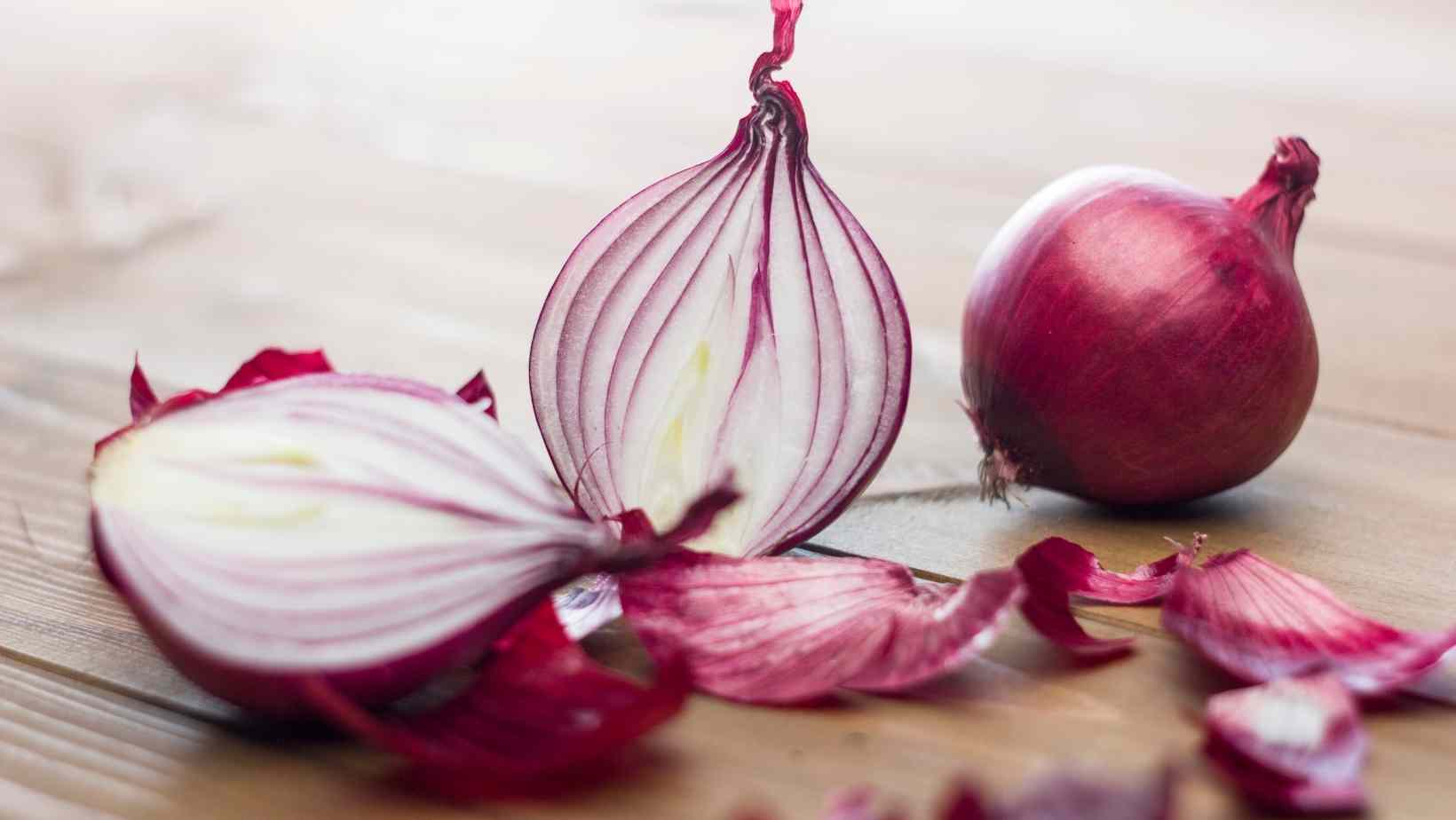What are onions?
Onions, along with garlic, shallots, and leeks, are botanically classified as members of the lily (Liliaceae) family. Onions contain powerful components that are recognised to be beneficial to one's health, despite the fact that they are not as well-known as garlic.
Onions serve as the foundation for a broad range of recipes, whether they are eaten raw, sautéed, roasted, steamed, or boiled in water.

Onions have a high nutritional value
An 80g serving of raw onion offers the following nutrients:
- 28 kcal / 120 kilojoules
- 0.8 grammes of protein
- 6.4 grammes of carbohydrates and 5.0 grammes of sugar
- 1.8 g of fibre
- 2.0 milligrammes of vitamin C
One medium onion, or 80g, qualifies as one of your five-a-day servings of vegetables. View this downloadable infographic to learn about the foods that contribute to your five-a-day requirement.
Health Benefits Of Onions
1. Contains a high concentration of antioxidant chemicals
A high concentration of plant compounds, particularly flavonoids, is found in onions, which have both an antioxidant and an anti-inflammatory impact. When ingested on a regular basis and in appropriate quantities, these substances may be beneficial in the prevention of chronic diseases such as cancer and diabetes. In fact, onions contain approximately 25 distinct types of flavonoids, making them one of the most abundant sources of flavonoids in our diets.
Onions also contain sulfur-containing chemicals, which have been shown to be protective against various malignancies in animal studies and human studies.
2. It has the potential to improve heart health
Onions include a flavonoid known as quercetin, which has antioxidant and anti-inflammatory characteristics that are expected to contribute to the vegetable's heart-healthy features. Other beneficial components found in onions are also thought to contribute to the vegetable's heart-healthy properties.
According to some research, eating onions may help decrease your risk of heart disease by lowering blood pressure, controlling cholesterol levels, and decreasing inflammation in the body.
3. It may be beneficial to bone health
Including onions in one's diet has been linked to increased bone density. Because of their antioxidant qualities, which seem to prevent oxidative stress and bone loss, it is possible that they are responsible.
According to the findings of research conducted on peri- and post-menopausal women, regular onion intake reduced the incidence of hip fracture. The use of onion juice, according to subsequent research conducted on middle-aged women, prevented bone loss and increased bone density.
4. It has the potential to improve intestinal health
Onions are high in fibre, particularly nondigestible fibre, which is essential for maintaining gut health and function. Although humans are unable to digest prebiotic fibre, the bacteria that dwell in our gut are able to do so, and they utilise it as fuel to help grow their numbers while also producing by-products known as short-chain fatty acids (SCFAs). According to research, these SCFAs are essential for preserving the health and integrity of the gut, as well as for promoting our immune and digestive function.

5. It has antibacterial properties
Onions, which have traditionally been used in folk medicine to treat coughs, colds, and catarrh, have been shown to have excellent antibacterial capabilities against bacteria such as Escherichia coli, Pseudomonas aeruginosa, and Staphylococcus aureus, according to research. Furthermore, it seems that the most effective onions are those that have been preserved for a long period of time. Once again, it seems that quercetin is beneficial in this situation since it has the ability to prevent the development of Helicobacter pylori and Methicillin-resistant Staphylococcus aureus, both of which are harmful bacteria (MRSA).
Is it safe to eat onions for everyone?
Although an allergy to onions is uncommon, some individuals are sensitive to them due to a variety of reasons. Because of this, people who are allergic to it may develop digestive problems such as heartburn and wind. Onions contain FODMAPs, a kind of carbohydrate and fibre that some individuals find difficult to digest due to their digestive system's reaction.
The best way to choose and store
The skins of globe onions should be dry and smooth, and they should be clean and firm. Avoid onions that have a fully grown seed stem or that have visible indications of deterioration. In order to keep onions fresh, they should be kept at room temperature, away from direct sunlight, and in a well-ventilated space. In contrast to sweeter tasting onions, those with a more pungent flavour, such as yellow onions, will keep for a longer period of time. This is because the molecules that give onions their strong taste are also natural preservatives. All onions should be kept apart from potatoes since they will absorb moisture and ethylene gas from the potatoes, causing the potatoes to decay faster. The use of metal bowls or storage containers for storing cooked onions can lead the onions to get discoloured over time. The flavour of chopped onions will be significantly diminished if they are frozen.
A chemical substance called alkyl sulphate, which is formed when the ruptured cells of the onion are exposed to air, is responsible for the production of tears in the onion. To limit the creation of this molecule, freeze the onions for about 30 minutes before chopping them to lower the activity of the enzyme that produces them.




